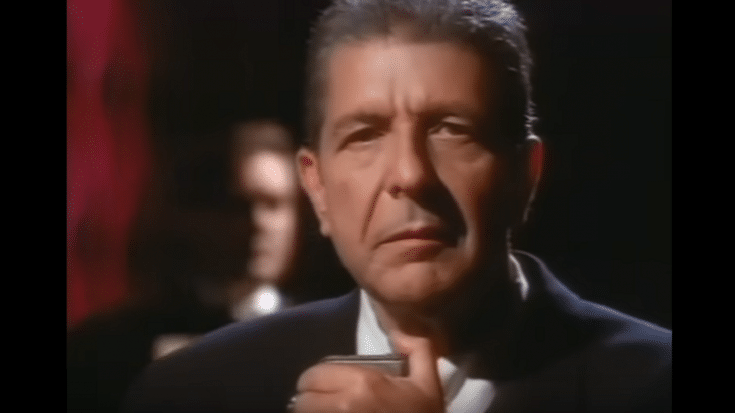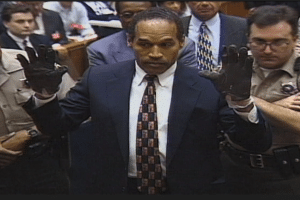7 Classic Rock Songs To Summarize The Career Of Leonard Cohen

via LeonardCohen/YouTube
One of The Finest Singer-Songwriters of All Time
With a career that spanned over four decades, Leonard Cohen left an indelible mark in rock. Interestingly, he got a late start as a musician. He was a poet and novelist before he decided to pursue his passion for music – it wasn’t until he was 33 years old when he released his debut album. Since then, he churned out stellar records and classic hits that hold up well decades later.
Before his death in 2016 at 82 years old, he was busy touring and recording new albums. Here, we look back at seven of his timeless tracks.
7. “Dance Me to the End of Love” (Various Positions, 1984)
From the get-go, this might seem like a love song. But in a 1995 interview, Cohen revealed that he actually drew inspiration from the Holocaust. He said, “That came from just hearing or reading or knowing that in the death camps, beside the crematoria, in certain of the death camps, a string quartet[3] was pressed into performance while this horror was going on, those were the people whose fate was this horror also. And they would be playing classical music while their fellow prisoners were being killed and burnt. So, that music, “Dance me to your beauty with a burning violin,” meaning the beauty thereof being the consummation of life, the end of this existence and of the passionate element in that consummation. But, it is the same language that we use for surrender to the beloved, so that the song — it’s not important that anybody knows the genesis of it, because if the language comes from that passionate resource, it will be able to embrace all passionate activity.”
6. “So Long, Marianne” (Songs of Leonard Cohen, 1967)
Inspired by an actual person, Marianne Jensen just split with her husband when Cohen met her in 1960 on the Greek island of Hydra. They hit it off and Cohen took her back home to Oslo, Norway. It wasn’t long before he invited her to join him in Montreal and they lived together there with her son. She was also the inspiration behind some of his poems and other songs.
5. “Bird on a Wire” (Songs from a Room, 1969)
https://youtu.be/BmPUu-rMpWA
One of his signature songs, he actually had a tough time recording it. Since he felt it didn’t sound “honest” enough, he asked most people in the studio to leave. He shared in I’m Your Man: The Life of Leonard Cohen, “I just knew that at that moment something was about to take place. I just did the voice before I started the guitar and I heard myself sing that first phrase, ‘Like a bird,’ and I knew the song was going to be true and new. I listened to myself singing, and it was a surprise. Then I heard the reply and I knew it was right.”
4. “Everybody Knows” (I’m Your Man, 1988)
https://youtu.be/Lin-a2lTelg
Written by Cohen and frequent collaborator Sharon Robinson, it tackles several issues like AIDS, social, religious, and even relationship problems. Robinson told Uncut, “Leonard had most of the lyric done when he handed it to me. There’s a profound honesty in it. He’s exposing something we all know and talk about with those close to us, but not publicly. It says we’re not really in control of our destiny, there are others running things, and we go about our daily lives with that in the background. It’s a protest song, so Leonard wanted something tough. I’d bring home verses, and go to the grand piano in my living room, as his lyrics require that purity of melody.”
3. “Famous Blue Raincoat” (Songs of Love and Hate, 1971)
A song telling the story of a love triangle, Cohen once admitted that he was never satisfied with the track. He also told BBC in a 1994 radio interview that he “never felt that this one, that I really nailed the lyric. I’m ready to concede something to the mystery, but secretly I’ve always felt that there was something about the song that was unclear. So I’ve been very happy with some of the imagery, but a lot of the imagery.”
2. “Suzanne” (Songs of Leonard Cohen, 1967)
Prior to its release as Cohen’s debut single, it was first published in 1966 as a poem. Inspired by a woman named Suzanne Verdal, it’s mostly about her platonic relationship with Cohen since she was then married to his friend. Speaking about her, Cohen said: “But there was no… well, there was thought, but there was no possibility, one would not allow oneself to think of toiling at the seduction of Armand Vaillancourt’s wife. First of all he was a friend, and second of all as a couple they were inviolate, you just didn’t intrude into that kind of shared glory that they manifested.”
1. “Hallelujah” (Various Positions, 1984)
Ironically, upon its release, it achieved minimal success. It only experience a surge in popularity after it was covered by John Cale, and then Jeff Buckley. Cohen explained, “Hallelujah is a Hebrew word which means ‘Glory to the Lord.’ The song explains that many kinds of Hallelujahs do exist. I say: All the perfect and broken Hallelujahs have an equal value. It’s a desire to affirm my faith in life, not in some formal religious way but with enthusiasm, with emotion.”


















